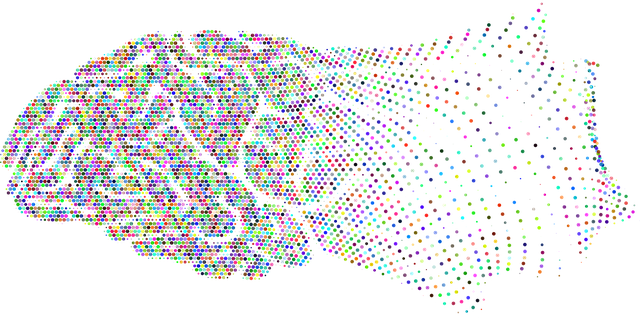Mental health professionals face challenges diagnosing complex conditions with overlapping symptoms. Traditional methods often lead to misdiagnosis or delayed treatment. Parker Codependency Therapy (PCT) offers a novel solution by addressing codependent relationships and behaviors that cause and mask mental health issues. Through crisis intervention, stress management workshops, and mindfulness meditation, PCT enhances self-awareness and accurate symptom recognition. Integrating evidence-based practices like PCT into clinical settings is crucial for improving diagnosis accuracy. Early intervention strategies encourage individuals to seek help early, preventing condition escalation and facilitating comprehensive understanding through open dialogue and tailored interventions.
Mental illness diagnosis accuracy is a critical aspect of patient care, yet challenges remain. This article explores efforts to enhance diagnostic precision, focusing on the role of Parker Codependency Therapy, evidence-based practices, and clinical training. We delve into how these strategies overcome barriers, improve reliability, and ensure effective treatment plans. By implementing early intervention and continuous support, mental health professionals can better understand complex presentations, ultimately benefiting patient outcomes. Discover how these approaches contribute to a more accurate diagnosis landscape, especially within the context of Parker Codependency Therapy.
- Understanding Diagnostic Challenges in Mental Health: Overcoming Barriers with Parker Codependency Therapy
- Enhancing Diagnosis Accuracy: Incorporating Evidence-Based Practices and Clinical Training
- The Role of Early Intervention and Continuous Support in Improving Diagnosis Reliability
Understanding Diagnostic Challenges in Mental Health: Overcoming Barriers with Parker Codependency Therapy

Mental health professionals face significant challenges when diagnosing individuals with complex and often overlapping mental illnesses. This complexity arises from various factors, including comorbidity, individual differences in symptom presentation, and the subjective nature of many psychological assessments. Traditional diagnostic approaches sometimes struggle to capture the nuances of these cases, leading to misdiagnoses or delayed treatment.
Parker Codependency Therapy (PCT) offers a promising solution to address these challenges. PCT focuses on identifying and resolving codependent relationships and behaviors that can both contribute to and mask underlying mental health issues. By providing individuals with crisis intervention guidance and teaching essential skills in stress management workshops, PCT facilitates personal growth and improved coping mechanisms. Additionally, incorporating mindfulness meditation practices within the therapy has been shown to enhance self-awareness, making it easier to recognize and articulate symptoms accurately. This holistic approach ensures a more comprehensive evaluation, leading to more accurate diagnoses and tailored treatment plans.
Enhancing Diagnosis Accuracy: Incorporating Evidence-Based Practices and Clinical Training

Improving mental illness diagnosis accuracy is a multifaceted approach that requires integrating evidence-based practices into clinical settings. One such practice, Parker Codependency Therapy (PCT), offers valuable insights into understanding complex interpersonal relationships and their impact on mental health. By incorporating PCT, therapists can gain deeper insights into clients’ emotional dependencies and co-dependent behaviors, enhancing diagnostic precision.
Additionally, robust clinical training is instrumental in refining diagnosis accuracy. Training programs should emphasize not only the latest research but also practical applications of evidence-based methods like stress management techniques. Public Awareness Campaigns Development and Inner Strength Development initiatives can play a pivotal role in educating both professionals and the general public about mental health, fostering an environment where accurate diagnoses are prioritized and supported.
The Role of Early Intervention and Continuous Support in Improving Diagnosis Reliability

Early intervention plays a pivotal role in enhancing the reliability of mental illness diagnoses. By implementing strategies that encourage individuals to seek help at the first signs of distress, healthcare professionals can prevent conditions from escalating and ensuring more accurate assessments. This proactive approach is particularly beneficial for complex disorders like codependency, where early detection through methods such as Parker Codependency Therapy can significantly impact treatment outcomes.
Continuous support systems are equally crucial. Trauma Support Services that incorporate Compassion Cultivation Practices have been shown to improve patient engagement and diagnosis accuracy. Effective communication strategies, fostered through open dialogue and tailored interventions, allow healthcare providers to gain a deeper understanding of the individual’s experiences, thereby enhancing the reliability of their mental health evaluations.
Mental illness diagnosis accuracy can be significantly enhanced through a multifaceted approach. By combining evidence-based practices, comprehensive clinical training, and early intervention strategies, healthcare professionals can improve reliability and effectiveness. Parker Codependency Therapy emerges as a powerful tool in this regard, addressing underlying codependent relationships that may complicate diagnostic processes. With continuous support, these efforts collectively contribute to better patient outcomes and a more holistic understanding of mental health conditions.














